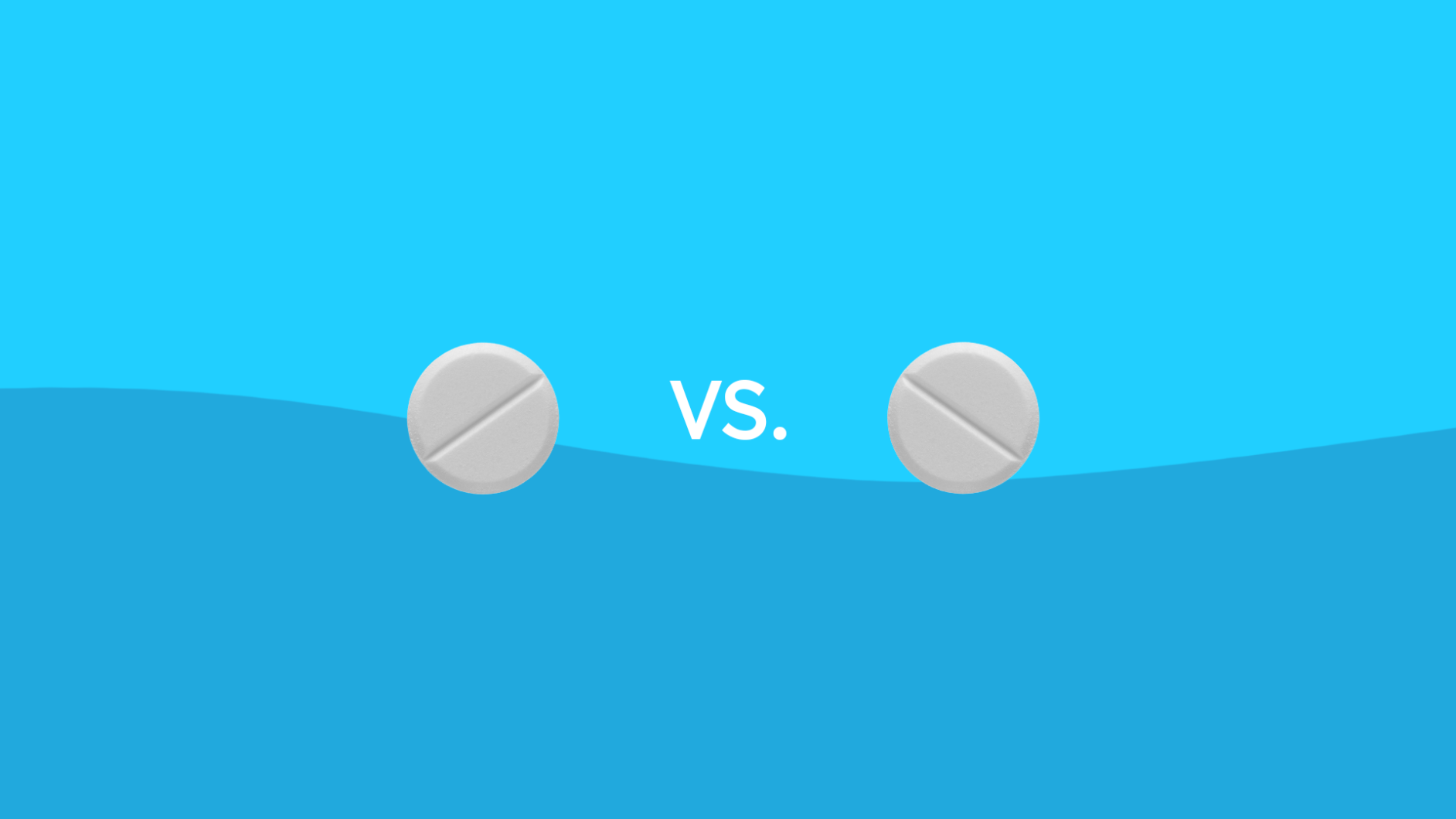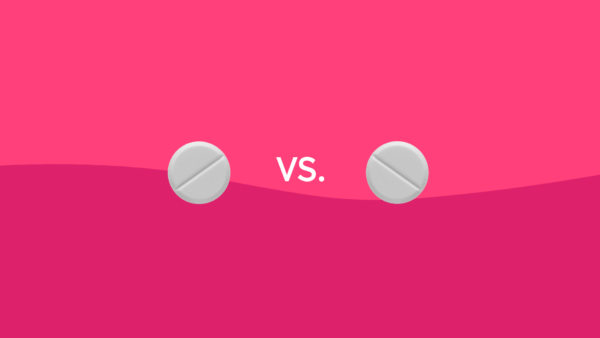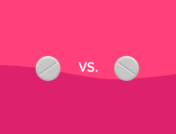Drug overview & main differences | Conditions treated | Efficacy | Insurance coverage and cost comparison | Side effects | Drug interactions | Warnings | FAQ
If you have type 2 diabetes, your doctor may recommend one of the diabetes medications called Jardiance or Invokana. Jardiance (made by Boehringer-Ingelheim) and Invokana (made by Janssen Pharmaceuticals) are two brand-name prescription drugs indicated for the treatment of type 2 diabetes. They belong to a class of drugs called SGLT2 (sodium-glucose cotransporter-2) inhibitors. They work by helping the kidneys remove blood sugar through the urine, thereby lowering blood sugar.
What are the main differences between Jardiance vs. Invokana?
| Main differences between Jardiance and Invokana | ||
|---|---|---|
| Jardiance | Invokana | |
| Drug class | SGLT2 inhibitor | SGLT2 inhibitor |
| Brand/generic status | Brand | Brand |
| What is the generic name? | Empagliflozin (not yet available in generic form) | Canagliflozin (not yet available in generic form) |
| What form(s) does the drug come in? | Tablet: 10 mg, 25 mg (empagliflozin is also available with metformin in a combination brand-name drug called Synjardy, and with linagliptin in Glyxambi) |
Tablet: 100 mg, 300 mg (canagliflozin is also available with metformin in a combination brand-name drug called Invokamet) |
| What is the standard dosage? | 10 mg every morning; may increase to 25 mg every morning | 100 mg every morning; may increase to 300 mg every morning |
| How long is the typical treatment? | Varies | Varies |
| Who typically uses the medication? | Adults with type 2 diabetes mellitus | Adults with type 2 diabetes mellitus |
Want the best price on Jardiance?
Sign up for Jardiance price alerts and find out when the price changes!
Conditions treated by Jardiance vs. Invokana
Jardiance (What is Jardiance?) is used, along with diet and exercise, to improve blood sugar control in adults with type 2 diabetes, and to lower the risk of cardiovascular (CV) death in adults with type 2 diabetes and established CV disease.
Invokana is also used, in addition to diet and exercise, to improve blood sugar control in adults with type 2 diabetes. It is also used to reduce the risk of major CV events in adults with type 2 diabetes mellitus and established heart disease. A third indication is to lower the risk of end-stage kidney disease, doubling of serum creatinine, CV death, and hospitalization for heart failure in adults with type 2 diabetes and diabetic nephropathy with albuminuria.
Neither drug should be used to treat type 1 diabetes or for diabetic ketoacidosis.
| Condition | Jardiance | Invokana |
| Adjunct to diet and exercise to improve glycemic control in adults with type 2 diabetes mellitus | Yes | Yes |
| Reduce the risk of cardiovascular death in adults with type 2 diabetes and established cardiovascular disease | Yes | No |
| Reduce the risk of major adverse cardiovascular events in adults with type 2 diabetes mellitus and established cardiovascular disease | No | Yes |
| Reduce the risk of end-stage kidney disease, doubling of serum creatinine, cardiovascular death, and hospitalization for heart failure in adults with type 2 diabetes mellitus and diabetic nephropathy with albuminuria | No | Yes |
Is Jardiance or Invokana more effective?
In a double-blind, placebo-controlled, 24-week study of Jardiance as monotherapy (used alone) in 986 type 2 diabetic patients, treatment with Jardiance resulted in lower HbA1c levels (a measure of glucose control over the past few months), lower fasting plasma glucose, and lower weight. In combination with other diabetes drugs or with insulin, Jardiance had a similar effect of improving numbers such as HbA1c.
In a double-blind, placebo-controlled, 26-week study of Invokana as monotherapy (used alone) in 584 type 2 diabetic patients, treatment with Invokana resulted in lower HbA1c levels, lower fasting and postprandial (after a meal) glucose, lower weight, and lower systolic blood pressure. Like Jardiance, when studied in combination with other diabetes drugs or with insulin, Invokana also had a similar effect of improving numbers such as HbA1c.
The most effective medication should only be determined by your doctor, who can look at the full picture of your medical condition(s), history, and other medications you are taking.
Get the pharmacy discount card
Coverage and cost comparison of Jardiance vs. Invokana
Without insurance, Jardiance costs approximately $625 and Invokana costs about $600 for a 30-day supply. Jardiance may possibly be more likely to be covered by insurance than Invokana; however, prices vary so widely that it is best to check with your insurance company or Medicare Part D plan for more information. You can save money with SingleCare on Jardiance—getting the prescription drug for $434-$500—and Invokana, paying an average of $450 per 30 count, 300mg tablets.
| Jardiance | Invokana | |
| Typically covered by insurance? | Yes | Varies by plan |
| Typically covered by Medicare Part D? | Yes | Varies by plan |
| Standard dosage | #30, 25 mg tablets | #30, 300 mg tablets |
| Typical Medicare copay | $19-612 | $25-$568 |
| SingleCare cost | $434-$500 | $450 |
Side effects of Jardiance vs. Invokana
With both Jardiance and Invokana, the most common side effects are genital mycotic infection, occurring in both males and females, but more commonly in females. Urinary tract infections are also a common side effect of both drugs. Other common side effects of both drugs include thirst, increased urination, and nausea.
| Jardiance | Invokana | |||
| Side effect | Applicable? | Frequency | Applicable? | Frequency |
| UTI | Yes | 7.6-9.3%* | Yes | 4.4-5.9%* |
| Genital mycotic infection | Yes | Female: 5.4-6.4% Male: 1.6-3.1% |
Yes | Female: 10.6-11.6% Male: 3.8-4.2% |
| Upper respiratory tract infection | Yes | 3.1-4% | No | — |
| Thirst | Yes | 1.5-1.7% | Yes | 2.4-2.8% |
| Increased urination | Yes | 3.2-3.4% | Yes | 4.6-5.1% |
| Nausea | Yes | 1.1-2.3% | Yes | 2.1-2.3% |
*Ranges due to different dosing. Source: DailyMed (Jardiance), DailyMed (Invokana)
Drug interactions of Jardiance vs. Invokana
Invokana interacts with the heart drug Lanoxin (digoxin) and drugs that are UGT inducers (drugs that are metabolized with certain enzymes) which include rifampin, phenytoin, phenobarbital, and ritonavir.
Both Jardiance and Invokana interact with diuretics such as Lasix (furosemide) and hydrochlorothiazide, as well as insulin and other diabetic medications such as metformin. Consult your healthcare provider for medical advice.
| Drug | Drug Class | Jardiance | Invokana |
| Rifampin Phenytoin Phenobarbital Ritonavir |
UGT inducers | No | Yes |
| Lanoxin (digoxin) | Cardiac glycosides | No | Yes |
| Lasix (furosemide) Hydrochlorothiazide |
Diuretics | Yes | Yes |
| Glucophage (metformin) | Insulin secretagogue | Yes | Yes |
Warnings of Jardiance vs. Invokana
Because both Jardiance and Invokana are SGLT2 inhibitors, they share many of the same warnings:
- Because of the risk of low blood pressure, BP should be monitored. Use extra caution in patients who take diuretics, elderly patients, patients with kidney impairment, and patients with low blood pressure. Dehydration may occur.
- Reports of ketoacidosis (very high blood sugar; acidic ketones build up in the urine) have occurred in patients on SGLT2 inhibitors. This can be serious, or even fatal. Symptoms can include thirst, frequent urination, nausea, abdominal pain, weakness, fruity-scented breath, and confusion. Seek emergency treatment, and the drug should be discontinued. Patients at higher risk of ketoacidosis include a lowered insulin dose, lower calorie intake due to illness or surgery, alcohol abuse, and pancreatic disease.
- SGLT2 inhibitors may cause kidney problems. Your doctor will assess your kidney function, and consider factors that increase the risk of kidney injury, such as concomitant medications and other medical conditions.
- There is an increased risk for serious urinary tract infections (UTI) as well as genital mycotic infections (vulvovaginal candidiasis in women; Candida balanitis in men, usually uncircumcised men).
- Using insulin or certain diabetes medications can increase the risk of hypoglycemia (low blood sugar) while taking an SGLT2 inhibitor.
- If hypersensitivity occurs (signs of an allergic reaction such as swelling, throat closing, etc), the medication should be discontinued and you should seek emergency care.
- Increased levels of LDL cholesterol may occur; cholesterol should be monitored.
- Serious, life-threatening Fournier’s gangrene (necrotizing fasciitis of the perineum, a serious bacterial infection) has been reported. Patients should be immediately evaluated if these symptoms occur: pain, tenderness, redness, or swelling in the genital or perianal area, fever, or malaise.
Invokana has some additional warnings:
- There is a boxed warning that comes with Invokana, which is the strongest warning as required by the FDA (Food and Drug Administration), regarding lower limb amputation.
- In clinical trials, there was an increased risk of lower limb amputations in patients taking Invokana, in patients with established CV disease or who were at risk for CV disease. The most frequent amputations were in the toe and midfoot, although some involved the legs. Some patients had multiple amputations or amputations involving both limbs. Before starting Invokana, you should talk to your doctor about your risk factors for amputation. If you do take Invokana, you should be closely monitored for infections, pain, tenderness, sores, or ulcers in the lower limbs, and stop taking Invokana and seek immediate treatment if this occurs.
- There is an increased risk of bone fracture with Invokana.
Neither Jardiance or Invokana is recommended during the second and third trimesters of pregnancy. Due to the risk of serious adverse effects on the baby’s kidneys, it is not recommended to use either drug during breastfeeding.
Frequently asked questions about Jardiance vs. Invokana
What is Jardiance?
Jardiance, which contains the medication empagliflozin, is a medication in the drug class known as SGLT2 inhibitors, which work by helping to remove sugar out of the body through the urine. Jardiance is made by Boehringer-Ingelheim and is marketed by Boehringer-Ingelheim and Eli Lilly and Company.
What is Invokana?
Invokana, which contains the medication canagliflozin, is also a medication in the drug class known as SGLT2 inhibitors, which work by helping to remove sugar out of the body through the urine.
Are Jardiance vs. Invokana the same?
Because they are in the same drug class, they have a lot of similarities, but some differences in side effects, dose, drug interactions, warnings, etc., detailed above.
Is Jardiance vs. Invokana better?
That depends. Both drugs have shown to be effective, as discussed above. There have not been studies comparing the two drugs head-to-head. Your doctor can help you decide if Jardiance or Invokana is right for you.
Can I use Jardiance vs. Invokana while pregnant?
Neither drug is recommended during the second and third trimesters of pregnancy. Also, it is not recommended to use either drug during breastfeeding due to the risk of serious adverse effects to the baby’s kidneys.
If you are already taking Jardiance or Invokana and find out that you are pregnant, contact your doctor for guidance. Glucose control during pregnancy is very important; however, it is likely that your doctor will switch your medication to achieve glucose control safely.
Can I use Jardiance vs. Invokana with alcohol?
Alcohol is one factor that can lead to ketoacidosis. Talk to your doctor if you drink alcohol before taking Jardiance or Invokana.
What medication is equivalent to Invokana?
Invokana is in the same drug class but not exactly equivalent to Jardiance, Farxiga (dapagliflozin), and Steglatro (ertugliflozin).
Is Jardiance a dangerous drug?
Every drug comes with a risk of side effects and warnings. Consult your doctor to see if Jardiance is a safe and appropriate drug for you.
Is Invokana being taken off the market?
Currently, Invokana is still on the market. The FDA did in 2017 regarding the increased risk of lower limb amputations in patients with established cardiovascular disease.





